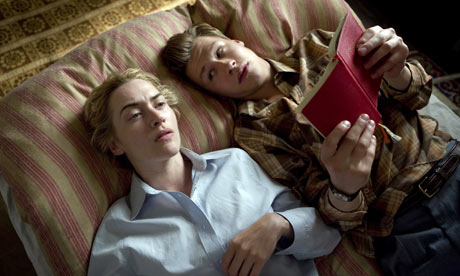
I'd never heard of William P Young's US-chart-topping novel The Shack until I got it free on the front of a magazine (I know, I know. I was tired and cold and in need of the sort of magazine that comes with a free paperback attached. I'm not proud.) Unsurprised that such a tooth-achingly mawkish bit of cut-rate Christian propaganda could amass such popularity – Angels and Demons has just raked in millions, after all – I was however a little taken aback by the postscript exhorting me to help disseminate The Shack "in the wider culture" in the belief that, in the words of Eugene Peterson, professor emeritus of spiritual theology at Regents College, Vancouver, "this book has the potential to do for our generation what John Bunyan's Pilgrim's Progress did for his".
Gosh. Leaving aside the suspicion that John Bunyan would baulk at being compared to a writer whose style can be summarised as "wow, God, I'd never seen the world that way before! Gimme a hug, big guy!", the very idea of a novel changing hearts and minds on a massive scale is rather shocking. Stories are no longer the sacred cultural treasuries they once were. Books have become unholy, cheap and familiar. You've read the seven plots again and again; you've ploughed through Proust with the same blasé greed with which you ploughed through the trash on the front of the mag. You may have cried, and laughed, and shaken your head at the terrible ways of men, but when did a novel last actually change what you think and what you do?
Of course, religious texts are prime examples of how stories have transformed people and societies in a very real way, although for believers their non-fictional status is exactly what makes them powerful. Early storytellers such as Petrarch and Shakespeare certainly and dramatically influenced the evolution of our language and thought, but they were circulating in a much smaller fictional marketplace, and in a culture where books had not yet been superseded by Google, Twitter, and Leo DiCaprio documentaries as the default medium for challenge and discovery. In our secular and individualistic times, claiming utility in art is something that few authors would dare to claim nowadays.
The old argument against the transformative ability of fiction focuses on its subjectivity. Novels are not self-help manuals or political tracts; they uniquely reflect the complexity and ambiguity of experienced life. Readers are therefore able, and prone, to filter the tale through their own prejudices. It's the reason why dictators and criminals can delight in our most compassionate and humanistic masterworks without feeling any apparent conflict with their own actions. But that same subjectivity also unlocks fiction's potential power, as stories use sensory evocation and emotional manipulation to involve readers deeply and personally with their characters and themes. They may inspire a change for the worse – a deepening of mania, or a justification of immorality – but that doesn't detract from their power to use words to effect behavioural change.
I'm convinced that novels change me all the time. After reading Jon McGregor's If Nobody Speaks of Remarkable Things I made an effort – which admittedly lapsed after a few days – to live in the present and notice the little stuff. After reading Blood Diamond I joined Amnesty International. After reading Dorothy Dunnett's Lymond Chronicles at the age of 15, I doomed my love life for years by measuring every potential date against a borderline genius, angelic-voiced, blond-haired 16th-century aristocrat. And don't tell me there isn't a whole generation out there campaigning to save the forests because they adored The Faraway Tree.
So – be it in a serious or frivolous way, for good or for bad – what was the last story that really changed you?

